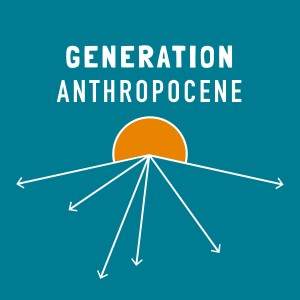
When the Conference of the Parties meets in Paris in the coming weeks, it will mark the 21st time the nations of the world have met to try to strike a deal to combat climate change. Given existing tensions between nations, and given that each country has a unique capacity to contribute to a comprehensive deal, we ask the question, "how can we measure success at the Paris negotiations?" Stanford researcher Aaron Strong and New York Time reporter Andy Revkin walk us through the history of previous negotiations to explore what went wrong, what we've learned, and why many are so optimistic about Paris. They point out the areas where progress has already been made and where the potential sticking points lie. As anthropogenic climate change continues to affect the world around us, success in Paris might look a little different than people have previously thought.
view more
More Episodes
Learning to Die in the Anthropocene
 2015-11-11
2015-11-11
 2015-11-11
2015-11-11
The Soundtracker
 2015-09-15
2015-09-15
 2015-09-15
2015-09-15
The Evolution of Fire
 2015-09-02
2015-09-02
 2015-09-02
2015-09-02
Rondonia
 2015-08-18
2015-08-18
 2015-08-18
2015-08-18
The Stakes
 2015-08-04
2015-08-04
 2015-08-04
2015-08-04
Seeds of Change
 2015-07-21
2015-07-21
 2015-07-21
2015-07-21
Hidden Water
 2015-07-07
2015-07-07
 2015-07-07
2015-07-07
What is the Anthropocene?
 2015-07-06
2015-07-06
 2015-07-06
2015-07-06
History is a Mess
 2015-06-23
2015-06-23
 2015-06-23
2015-06-23
A Slight Digression: Invertebrates
 2015-06-16
2015-06-16
 2015-06-16
2015-06-16
The Urban Equation
 2015-06-03
2015-06-03
 2015-06-03
2015-06-03
Hanging Out in a Rambunctious Garden
 2013-08-20
2013-08-20
 2013-08-20
2013-08-20
Rebroadcast: Tracing Networks of Disease
 2013-04-15
2013-04-15
 2013-04-15
2013-04-15
A Cosmic Twin Study
 2013-01-08
2013-01-08
 2013-01-08
2013-01-08
Earth's Tipping Points & Abrupt Climate Change
 2012-10-30
2012-10-30
 1
1
 2012-10-30
2012-10-30
 1
1
012345678910111213141516
Create your
podcast in
minutes
- Full-featured podcast site
- Unlimited storage and bandwidth
- Comprehensive podcast stats
- Distribute to Apple Podcasts, Spotify, and more
- Make money with your podcast
It is Free
- Privacy Policy
- Cookie Policy
- Terms of Use
- Consent Preferences
- Copyright © 2015-2024 Podbean.com






